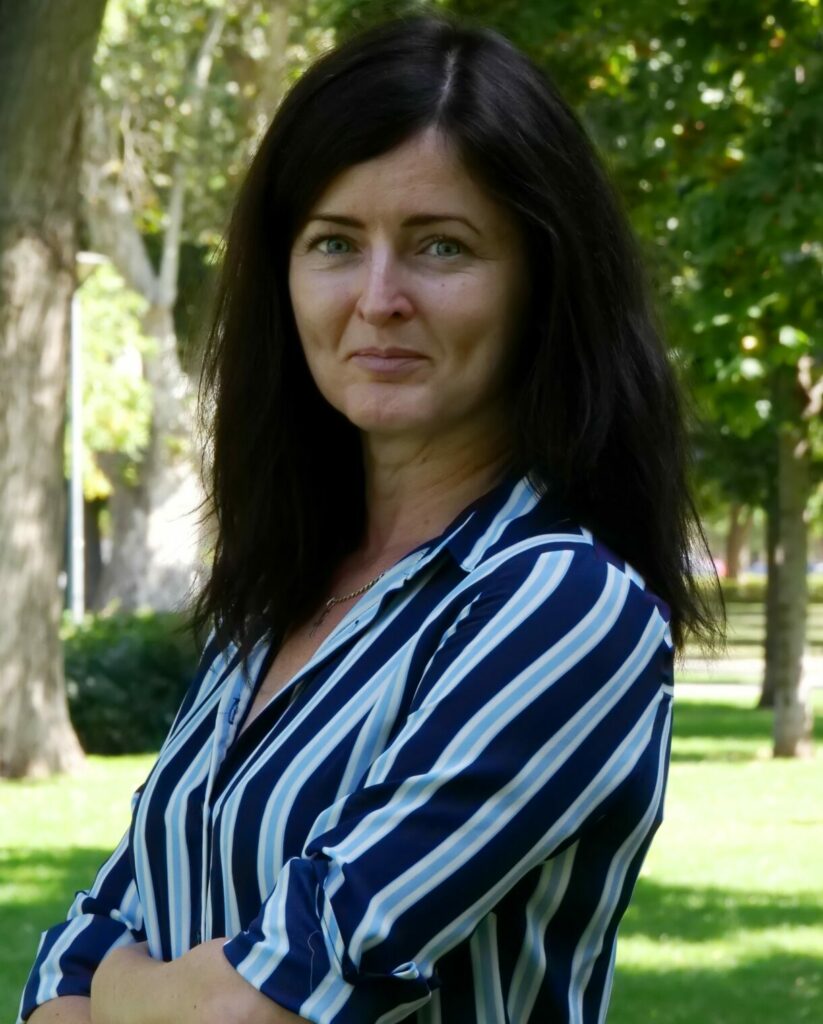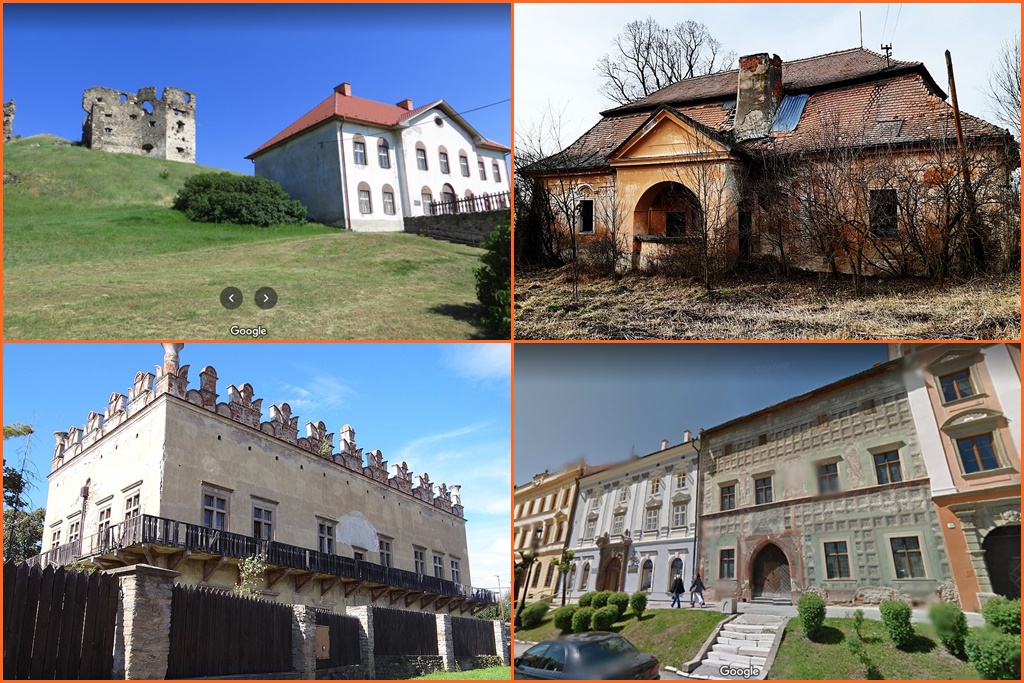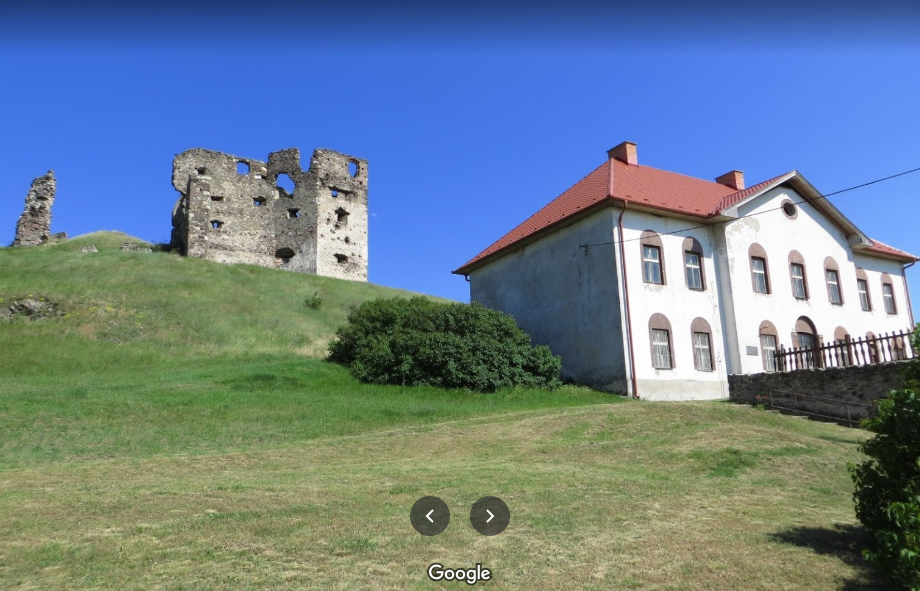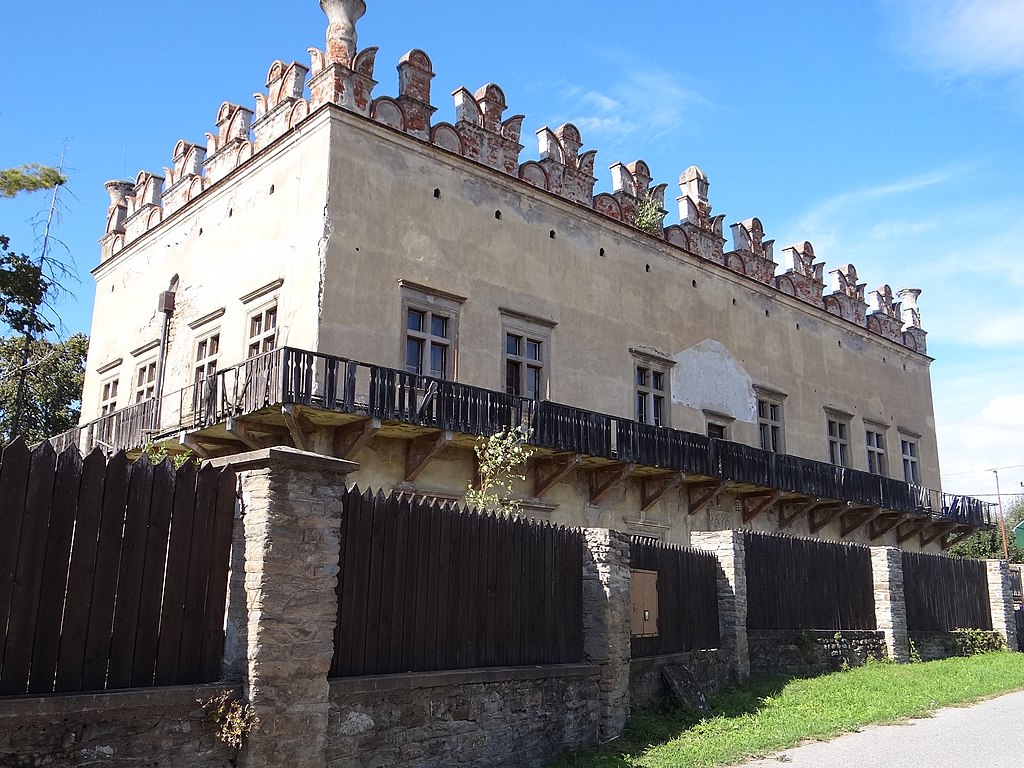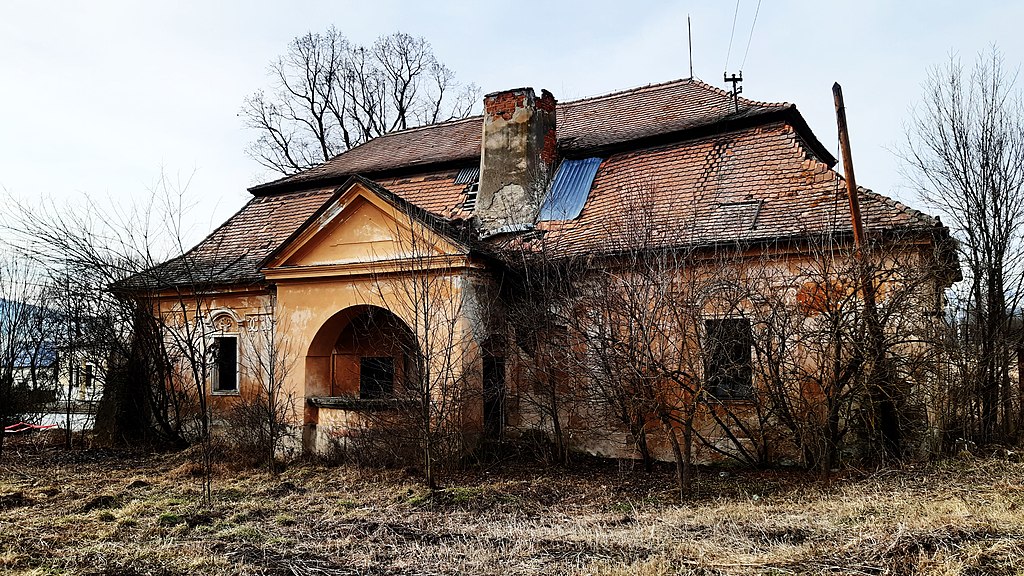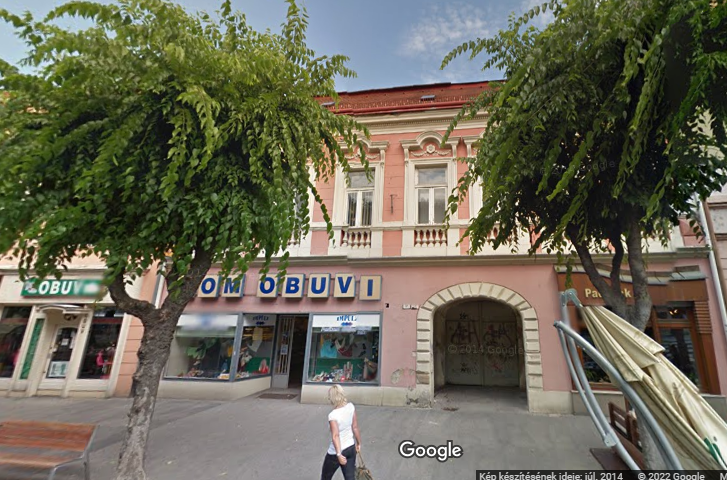The https://english.atlatszo.hu use cookies to track and profile customers such as action tags and pixel tracking on our website to assist our marketing. On our website we use technical, analytical, marketing and preference cookies. These are necessary for our site to work properly and to give us inforamation about how our site is used. See Cookies Policy
Public foundation owns a total of 24 secretly purchased properties in the neighbouring countries
Betlanovce, Kežmarok, Levoča, Veľký Kamenec, Trenčín: these are the settlements where new properties were acquired by a subsidiary of the Foundation for Preserving Built Heritage in Central Europe (Közép-európai Épített Örökség Megőrző Alapítvány) in Upper Hungary (Felvidék) in Slovakia. This brings to 24 the number of buildings acquired by the Foundation, which was set up by the Hungarian State in areas that belonged to Hungary before the Treaty of Trianon more than 100 years ago.
In June 2020, a bill was submitted to the Parliament on the establishment of the Foundation for Preserving Built Heritage in Central Europe (KEÉÖMA). In February 2021, the Foundation’s founding document was adopted and in March 2021 it was registered by the court.

The government donated two state-owned companies, Manevi Zrt. and Comitatus-Energia Zrt., to the foundation as a start. According to the registration order of the Metropolitan Court of Budapest, the State donated a total of HUF 15.8 billion in assets. Of this, 600 million in cash, the rest in shares: the value of the two (formerly state-owned) companies.
The Board of Trustees of the Foundation is chaired by Levente Magyar, Parliamentary State Secretary and Deputy Minister at the Ministry of Foreign Affairs and Ministerial Commissioner for Francophone Affairs. The members of the Board of Trustees are Péter Kiss-Parciu (Deputy State Secretary for Regional and Cross-border Economic Development at the Ministry of Foreign Affairs), Orsolya Mária Pacsay-Tommasich (State Secretary for the Hungarian Diplomatic Academy and the Stipendium Hungaricum Programme at the Ministry of Foreign Affairs and Trade), Gergely Jákli (CEO of Eximbank) and Zsolt Virág (Ministerial Commissioner for the National Castle Programme and the National Castle Programme).
Expansion in the Trianon territories
In May 2021, we reported that the two (formerly) state-owned companies, Manevi Zrt. and Comitatus-Energia Zrt., which were donated to the Foundation had a total of 4 properties abroad at the time of the donation: a wellness centre in Lendava, Slovenia, a listed building in Osijek, Croatia, and two hotels in Romania, the Pannónia Hotel in Satu Mare and the Korona Hotel in Maramures.
But the acqusition of properties did not stop there: at the end of last year, we published a series of articles showing where else the foundation had bought properties and how many subsidiaries it had set up. In our joint research with Átlátszó Transylvania, we found 16 properties and 6 subsidiaries in 4 countries.
The buy-back of Greater Hungary: a public foundation secretly purchased 16 properties in the neighbouring countries
The Hungarian government has donated two state-owned companies and a total of HUF 15 billion in state assets to the Foundation for Preserving Built Heritage in Central Europe (Közép-európai Épített Örökség Megőrző Alapítvány), which was registered this year.
This year, they continued the expansion: in April, we wrote that the foundation’s Slovakian subsidiary Manevi SK (founded by Manevi Zrt. but owned by Comitatus-Energia Zrt. since November 2021) bought the Polyclinic building in Komarno for 270,000 euros (about 100 million HUF at the then exchange rate), which they had already planned to buy in 2021.
They also bought a castle and a castle ruin
On 15 June 2022, Radio Patria in Slovakia reported that Manevi SK had bought Veľký Kamenec Castle and the nearby castle for 151,000 euros (about HUF 60 million). The buliding is only a ruin now: the fortress was blown up, and its stones were then used to build the Catholic church and the Szirmay-Fischer castle on the slope of the castle hill.
On 16 June, the Slovakian newspaper Korzár reported on Manevi SK’s other property acquisitions in Upper Hungary (in Hungarian: Felvidék). The most historically and culturally valuable of the buildings bought is the Faigel-Thurzó castle in the village of Betlanovce. The building has been unoccupied for years and is in a very neglected state. According to the Slovak land registry, the castle was purchased by Manevi SK on 29 December 2021.
The village has a Baroque mansion from the 18th century, which, according to its title deed, was also bought by Manevi SK in May this year.
Kežmarok, Levoča, Trenčín
A little earlier, Manevi SK acquired a building in the old town of Levoča. The Renaissance town house in the main square was built/extended around 1530 by the Polish-born Sebestyén Krupek. The Krupek house, once beautiful but now in a very deteriorated state, was bought by Manevi SK in April this year, according to the Slovak land registry.
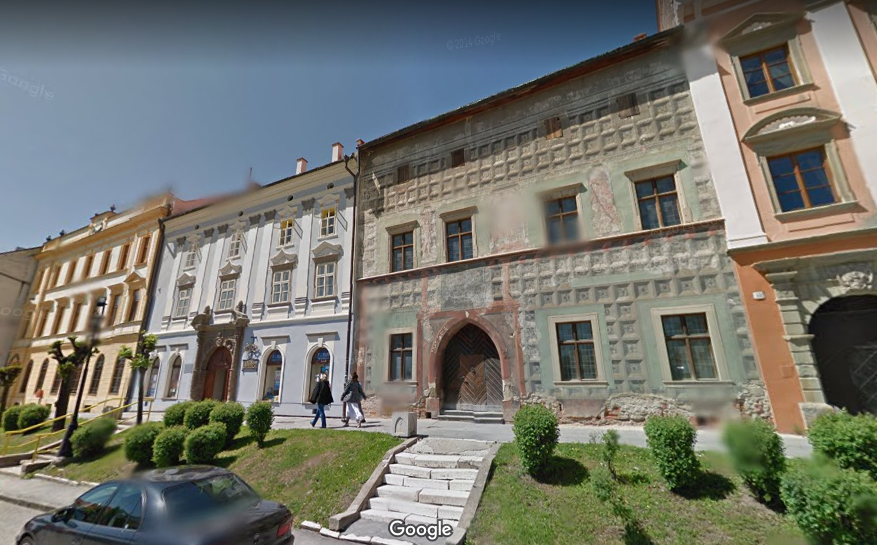
The Krupek House in Levoča (source: Google, 2012)
Earlier this year, in February, Manevi SK was registered in the Slovak Land Registry as the owner of a building in the main square of Trenčín. The property purchased by Manevi SK is listed as a ‘polyfunctional’ building in the Slovak cadastre and has a good view of the castle overlooking the settlement, according to the Google street map. The fortress burnt down in 1790, was restored in the 1950s and is in a very beautiful state.
The Slovak subsidiary of the Foundation has also bought a listed property in Kežmarok. According to the local land registry, Manevi SK became the owner of an old town house in the main square in October 2021. The property is just a few steps away from the Gothic town hall, which appears to be a church and was built in 1461.
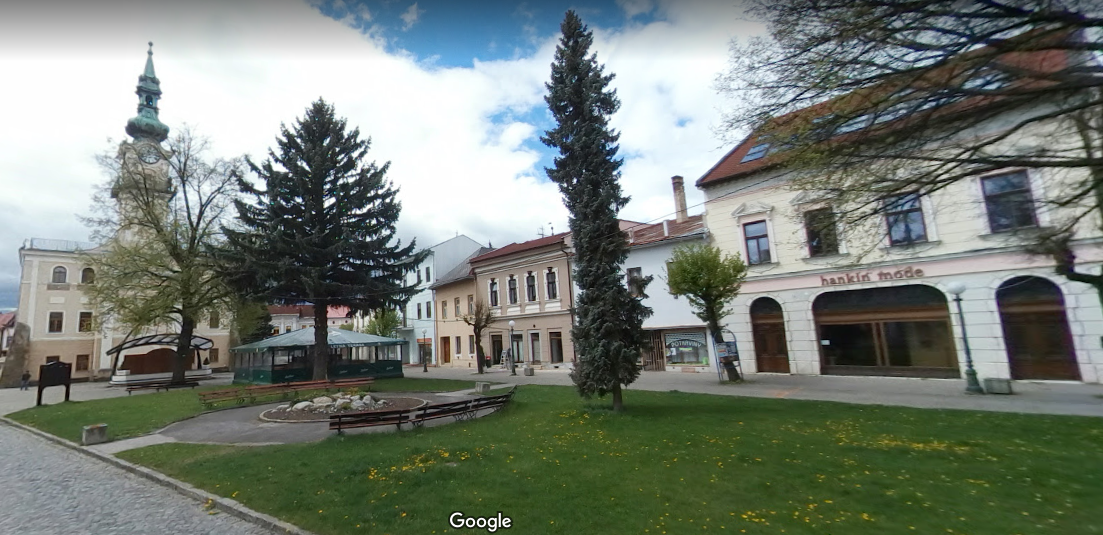
The town house in Kežmarok with the towered town hall in the background (source: Google/BeataKuckovska, 2017)
24 properties abroad
When we published our series of articles in November last year, Manevi SK already owned the townhouse in Kežmarok, we just didn’t know about it, because in Hungary, it is not possible to search for the name of the owner in these land registry databases.
We have added to our then map the new acquisitions now revealed. Together with these and the Polyclinic in Komárno, acquired in April, we now know a total of 24 properties in four countries: 13 in Slovakia, 8 in Romania, 2 in Slovenia and 1 in Croatia, all owned by Foundation for Preserving Built Heritage in Central Europe.
On the map, the red are the buildings of Manevi and its subsidiaries, the purple are the buildings of Comitatus and its subsidiaries.
On the day after the article of Korzár appeared on Manevi SK’s properties in Slovakia, on 17 June 2022, Hungarian Foreign Minister Péter Szijjártó held a joint press conference with Ivan Korčok (Minister of Foreign and European Affairs of Slovakia) in Budapest. Szijjártó called on the press to be fair and not to create tension, as the Slovak state had the right of first refusal on the listed properties, but did not exercise it. Referring to Manevi SK as “a foundation company”, the Hungarian foreign minister said that it had bought the buildings “for commercial, and investment reasons”.
Buildings worth HUF 3 billion
Shortly before the Foundation was established, in early February 2021, Manevi SK was registered in Slovakia, founded by the then state-owned Manevi Zrt. More than six months after the registration of the foundation in March, the Slovak subsidiary was taken over by another (formerly) state-owned company, Comitatus-Energia Zrt.
Manevi SK’s first financial statements for last year have recently been published. According to the balance sheet, the company’s total assets
at the end of 2021 was EUR 10.9 million (approximately HUF 4.4 billion), of which buildings amounted to EUR 7.6 million (approximately HUF 3 billion) and land to EUR 1.7 million (approximately HUF 676 million),
This €7.6 million figure does not include the buildings bought this year, but only last year’s acquisitions, such as the monastery in Šahy, the bathhouse in Trenčéntyeplice, the monument in Košice, the Faigel-Thurzó castle in Betlanovce and the monument in Kežmarok.
Last year’s report of Comitatus-Energia Zrt., which directly owns Manevi SK, was also published. According to a supplementary annex to the document, the Slovak subsidiary is valued at HUF 3.98 billion, which is roughly the same as the figure in Manevi SK’s accounts. It is also stated in the Comitatus document that Manevi SK was bought (apparently from the previous owner Manevi Zrt.) for EUR 9.6 million (at the exchange rate of 360 at the time of the November sale, about HUF 3.5 billion) last year and that a capital increase of EUR 1.5 million (about HUF 540 million at the exchange rate of 360) was carried out in the company.
The Foundation for Preserving Built Heritage in Central Europe itself increased its capital in Comitatus-Energia Zrt. by issuing new shares, increasing the company’s capital reserves by HUF 7 billion, bringing the total to nearly HUF 11 billion. Comitatus-Energia Zrt., which owns the Lendava spa, the vineyard in Čentiba and Manevi SK, finally achieved a net turnover of HUF 9 million last year after several years of zero turnover, but nevertheless generated a loss of HUF 75 million, which was higher than ever before.
Translated by Zita Szopkó. The original, Hungarian version of this article was written by Katalin Erdélyi and can be found here.
Hungarian company data were provided by Opten Kft. Data for Slovakia was provided by the Ján Kuciak Investigation Centre (ICJK). Cover photo: The castle and manor house of Veľký Kamenec , the castle and manor house of Betlanovce and the Krupek house of Levoča.
Share:
Your support matters. Your donation helps us to uncover the truth.
- PayPal
- Bank transfer
- Patreon
- Benevity
Support our work with a PayPal donation to the Átlátszónet Foundation! Thank you.
Support our work by bank transfer to the account of the Átlátszónet Foundation. Please add in the comments: “Donation”
Beneficiary: Átlátszónet Alapítvány, bank name and address: Raiffeisen Bank, H-1054 Budapest, Akadémia utca 6.
EUR: IBAN HU36 1201 1265 0142 5189 0040 0002
USD: IBAN HU36 1201 1265 0142 5189 0050 0009
HUF: IBAN HU78 1201 1265 0142 5189 0030 0005
SWIFT: UBRTHUHB
Be a follower on Patreon
Support us on Benevity!
